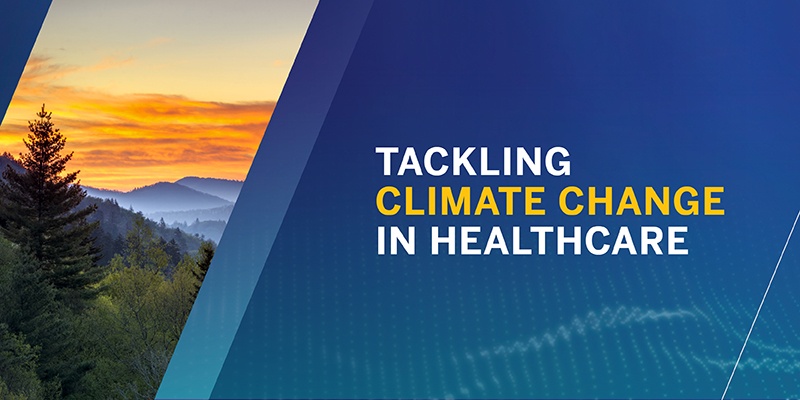
By Shawn Canterbury, Director, Drug Stewardship, Healthcare Solutions:
In the face of escalating climate change, the healthcare industry finds itself in a catch-22: the health of the general public is adversely affected by climate change, and yet the healthcare industry itself contributes to those health issues, albeit inadvertently. The world has accepted the role every individual plays in environmental impact, but it’s becoming increasingly clear that — to really move the needle — more change needs to happen on the industry level. At this critical juncture, it’s imperative to acknowledge the healthcare sector’s contribution to environmental risks, and to allow that acknowledgment to compel the industry to prioritize solutions.
Connecting Generations: Shifting Perspectives On Climate Change
The divide between climate change perspectives seems, at least in part, to be generational. Younger individuals tend to demonstrate a heightened sense of both environmental consciousness and anxiety about its effects, a trend that still downshifts in each preceding generation. The under-45 crowd is leading the pack on electric cars. Gen Z outpaces their parents on prioritizing reusable water bottles. In fact, Gen Z’s tendency to see the link between extreme weather events and climate change averages an extraordinary 82%, while their grandparents’ generation is 10% lower — a noteworthy shift in perspective. This generational transition presents an opportunity for healthcare professionals to align practices with the priorities of this newer, more eco-conscious wave of patients.
Healthcare’s Role: An Imperative For Adaptation
Amidst these evolving patient perspectives lies an opportunity for healthcare providers and manufacturers to wholeheartedly embrace solutions for climate change. The gravity of medical pollution cannot be overstated, especially considering a recent global study uncovering trace pharmaceuticals in 258 rivers worldwide, affecting a staggering 471 million individuals across 104 countries. Alarmingly, a quarter of these sites exhibit pharmaceutical concentrations posing substantial risks to environmental and human health. Swift adaptation within the healthcare industry is paramount to address pollution and its effects on the planet and the health of the general population — whether that’s leading the conversation on sourcing local, sustainable food as preventative medicine; taking advantage of Inflation Reduction Act (IRA) incentives on renewable energy; or advocating for safe prescription drug disposal programs for consumers.
Empowering Individuals For Greener Practices
In this era of heightened eco-consciousness and climate change anxiety, empowering this younger, greener generation of patients with planet-friendly health solutions is of the utmost importance — as is bringing the older generations into the fold. Encouraging environmentally responsible choices in medication disposal, food consumption, and so on, not only helps safeguard human health but also fosters a culture of accountability beyond the mere observance of a once-a-year Earth Day.
As we confront the increasing challenges of climate change, the healthcare industry stands at a pivotal moment. While it has, often unwittingly, contributed to environmental risks, there’s an opportunity for the sector to lead the charge towards solutions. By prioritizing environmentally responsible choices within their organizations and advocating for sustainable health decisions by patients, healthcare value chain stakeholders can begin to mitigate their collective impact on climate change. Let us seize this opportunity to not only address the pressing health concerns caused or worsened by climate change but also to actively contribute to the preservation of our planet for future generations.
